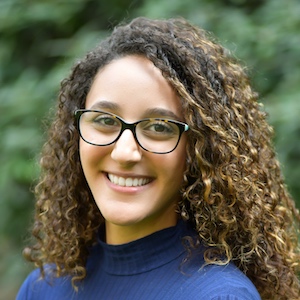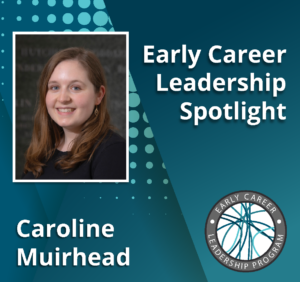We’re taking time to get to know the members of the GSA’s Early Career Scientist Committees. Join us to learn more about our 2021 early career scientist advocates.

Marah Wahbeh
Policy and Advocacy Subcommittee
Johns Hopkins University School of Medicine
Research Interest
Schizophrenia, a condition that prevents a person from always recognizing what is real from what is not (having hallucinations and delusions), is a chronic mental disorder that impacts ~0.5-1% of the global population. Patients suffer from a variety of symptoms that affect their functional and occupational independence. Like many neuropsychiatric disorders, schizophrenia is a complex disease with risk factors involving both genetics and the environment. In the last few decades, advancements in genomic technologies have allowed us to learn about the many genes and variants associated with disease development. The large number of associations between genes/ variants that have been identified, if further studied, would provide us insight into biological pathways that can be used as ways to not only further understand the disease but as a way to help assess the risk of individuals and develop potential drug targets to prevent and better treat the disease. This is important as current treatments for schizophrenia (the administration of antipsychotic drugs) have a variable impact on patient symptoms.
My PhD work is focused on elucidating the functional impact of some of the recently discovered genetic schizophrenia associated variants (both common and rare) by using a combination of transcriptomics, CRISPR/Cas9 genome editing, and induced pluripotent stem cell derived neurons. My goal is to further contribute to the field’s understanding of functional pathways involved in schizophrenia development. This knowledge could help inform future studies for developing more effective and personalized drugs for patients with schizophrenia.
As a PhD-trained scientist, you have many career options. What interests you the most?
Before entering graduate school and during my time as a graduate student, I have been involved in many projects outside of the lab, both science related and not. During my participation in these projects, I learned that I enjoy working in collaborative environments which involve a lot of interpersonal interaction with other people. I also value projects that have a direct impact on helping others, be it peers, mentees or more broadly early career scientists. My goal is to engage in work that can foster my interest and expertise in science and genetics, build on the skills that I gained as a scientist like critical thinking and problem solving, and honor my desire for a career that involves working in teams on projects that are fast-paced and have a direct impact on people.
As of now, I am most interested in pursuing science policy, as the work environment and values are a close match for what I want out of a career. Policy is informed by science and vice versa. Scientific advancements go from bench to bedside through successful science communication and effective policy making. I want my contribution to science to fall into that communication channel. After my PhD, I hope to get the opportunity to do a fellowship in science policy to help me transition into a career that does not involve doing bench work.
In addition to your research, how do you want to advance the scientific enterprise?
Aside from science, advocating for diversity, equity, and inclusion within the genetics community and larger science community is something I feel very passionate about. I believe creating academic spaces that are inclusive, welcoming, and supportive of differences is crucial to the success of trainees, especially early in our careers. Some of the ways in which I have been involved have been mainly by advocating for student diversity and equity in my own institution. Some of the efforts I worked on included establishing a PhD student diversity committee to integrate student groups’ efforts in relation to diversity, helping advocate for centralizing diversity and inclusion resources, and implementing an annual implicit bias training for students and faculty in my department.
Another way in which I would love to be more involved is science communication within the scientific community, by encouraging interdisciplinary collaborations nationally and internationally, as well as with the public, and with policy makers. This is important to me as many scientific advances are made to improve clinical care from diagnostics to treatment and without successful science communication and policy making, moving the science to society is not possible.
As a leader within the Genetics Society of America, what do you hope to accomplish?
My goal as a GSA leader and a member of the Policy and Advocacy subcommittee is to contribute to projects that help geneticists create channels for educating, engaging, and equating policymakers and the public with genetic knowledge and its significance. I want to work with teams on efforts that effectively explore and implement policies that ensure ethical, legal, and privacy protection for such engagement. Moreover, I want to help trainees and early career scientists like myself be active participants in shaping policies that have implications for our training and careers. This includes providing resources for trainees that help make engaging in science policy less intimidating, directly advocating for early career scientists through Hill Days and other avenues for getting our voices heard, and helping create a community to connect early career scientists with one another to share and learn from each other.
Previous leadership experience:
Co-Founder and current chair of The Peer Collective
Co-organizer and host of the Partnering Towards Discovery Series
2018/2019 VP of Diversity and Inclusion for the JHSOM Graduate Student Association
2019 Policy and Programming Chair for the Equity in Genetics student committee













